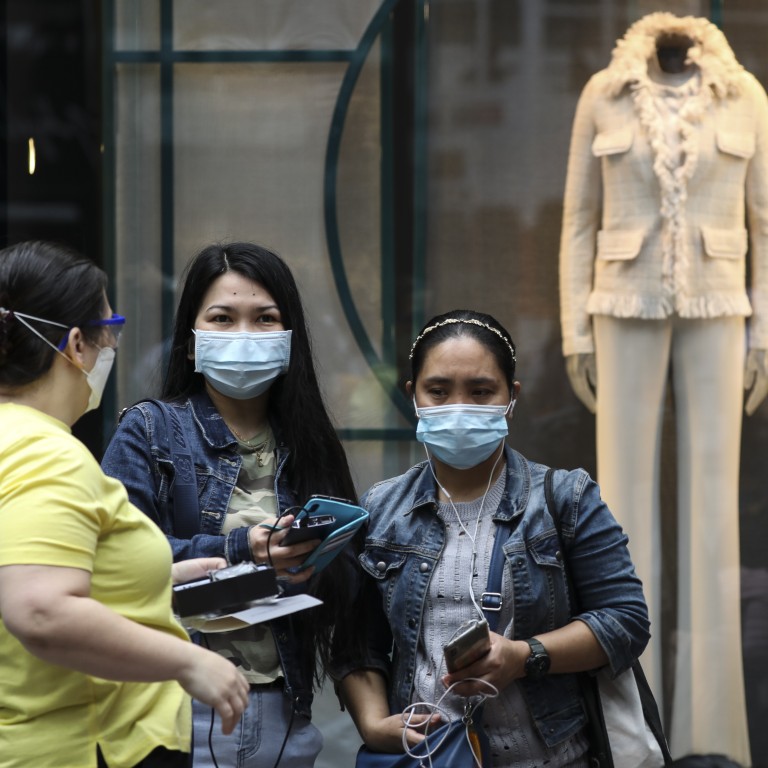
How coronavirus pushes Hong Kong domestic workers into debt traps
- Job uncertainties and pressure to support families under lockdowns in their home countries mean many helpers are struggling with debt and threats
- Experts are calling for greater monitoring and regulation of the lending industry amid instances of predatory practices
When Rose, a Filipino domestic worker in Hong Kong, learned that a relative had developed cancer, she felt she had no option but to turn to a loan company. The migrant worker, who has lived in the city for about a decade, borrowed about HK$20,000 at the end of last year so she could help with the necessary medication and treatments.
“I am under a lot of stress. My head hurts because I can’t stop thinking,” she says, fighting back tears.
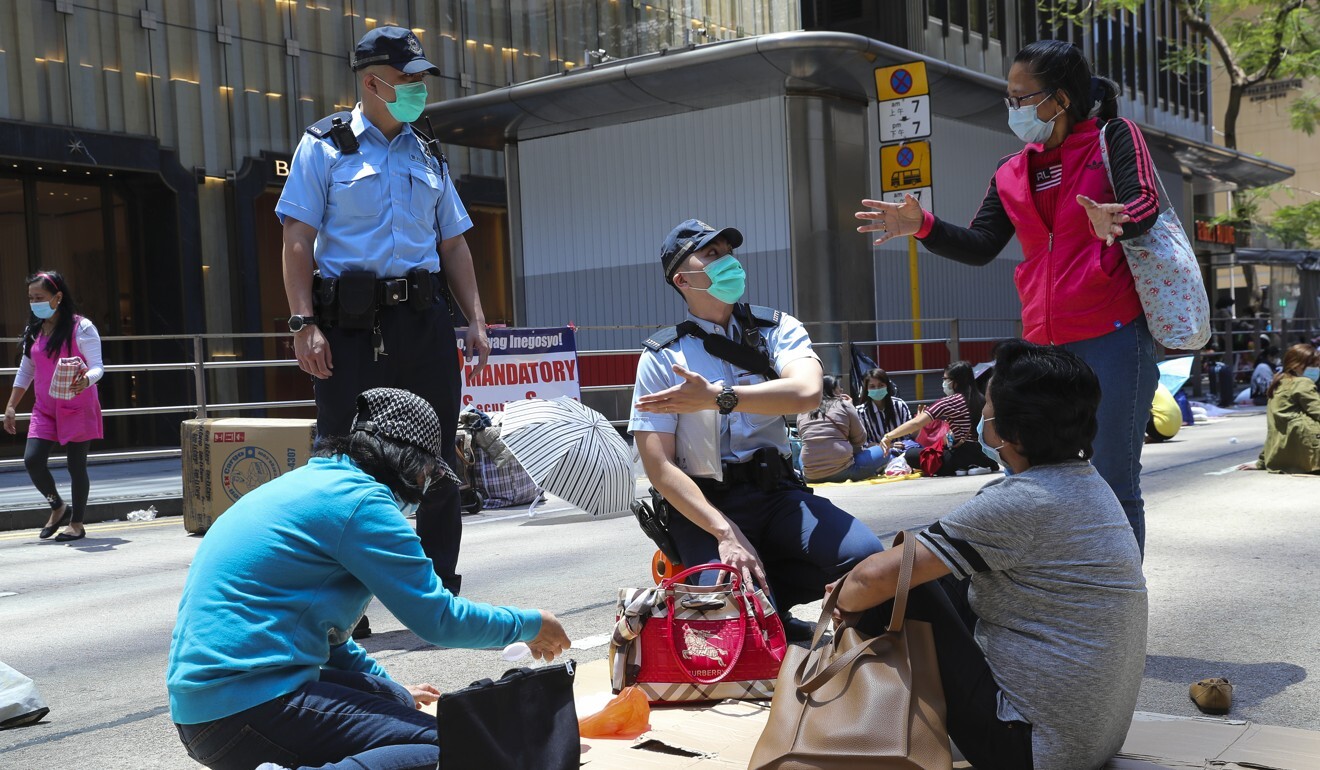
“They send me more and more messages every day. I hope they consider this situation,” she says. “I will pay, but now I don’t really have money. I don’t know what to do.”
Hong Kong domestic workers ‘angry’ at exclusion from coronavirus relief measures
Experts say lending companies in Hong Kong have shown little understanding of the situation. They say further regulation and enforcement are needed for an industry that has been plagued by unscrupulous dealers.
UNEXPECTED CHALLENGES
Hong Kong hosts about 400,000 foreign domestic workers, most of whom hail from the Philippines and Indonesia.
Many borrow money at the very beginning of their immigration journey, often to pay illegal agency fees. The debt grows as workers seek additional loans to deal with emergencies, pay for school fees, renovate a house or set up small businesses.
Although debt is a long-standing issue among Hong Kong domestic workers, whose minimum salary is HK$4,630, the coronavirus crisis has brought additional challenges.
When Emily, a 23-year-old single parent from the Philippines, decided to find a job as a domestic worker in Hong Kong last year, she took a HK$6,000 loan in the Philippines to cover agency fees.
“I already paid back HK$2,000, but I stopped in February because of the coronavirus crisis and also because they never gave me a loan agreement, which is illegal,” she says.
Coronavirus fuels rise in Hong Kong domestic worker sackings
Emily says she is being threatened. “I borrowed in the Philippines but now this other company in Hong Kong is sending me letters,” she says. “I think these companies are taking advantage of the situation.”
Angelica, 54, who filed a police complaint against a money lender that continued harassing her even after she paid her loan, says life has become harder since the coronavirus outbreak.
“Of course, we have more difficulties now. I am very upset. I feel that my salary is not enough – my parents and siblings they all lost their jobs. We have nothing.”
Angelica, who has been a domestic worker in the city for about eight years, is worried both about the situation in the Philippines, where lockdown measures remain, and in Hong Kong.
“You don’t know what will happen. Employers are now stricter, they don’t let us leave the house, and the economy is not good, so I am concerned.”
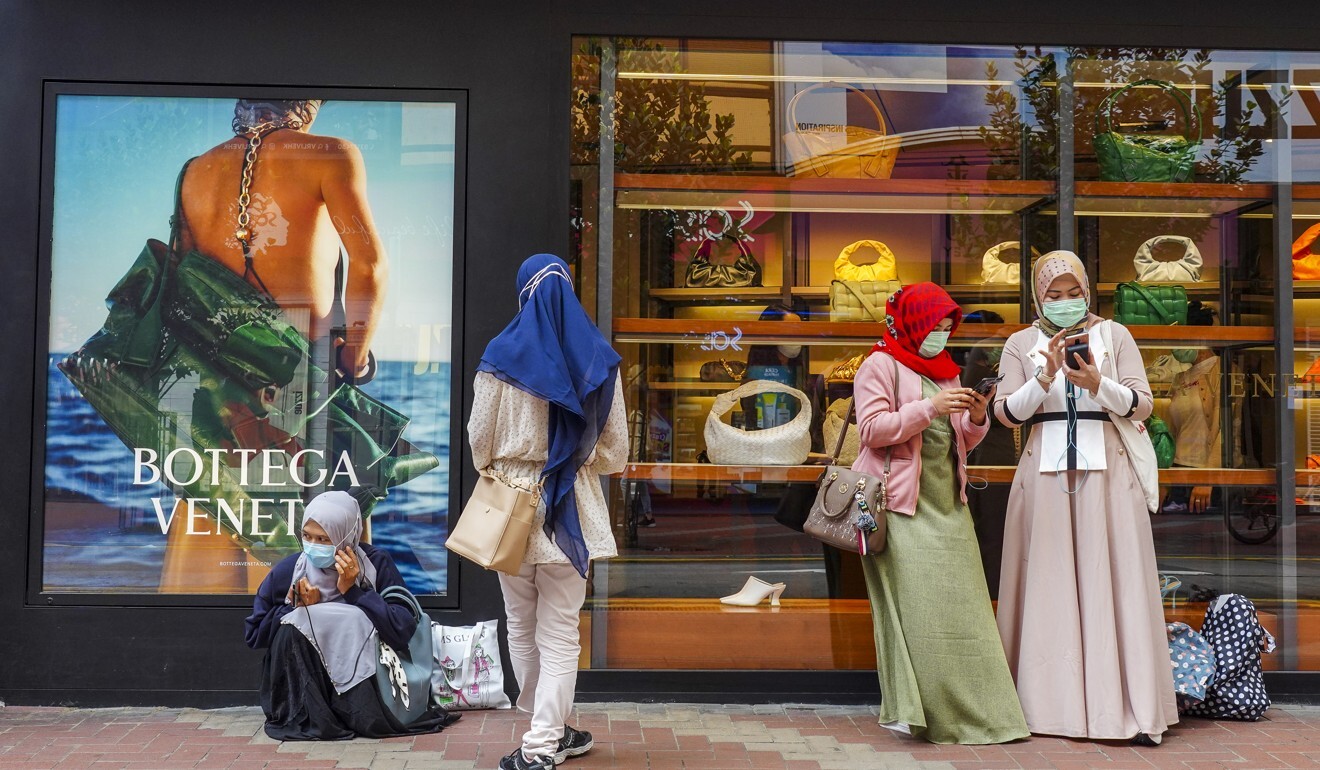
Samantha, 47, took a small loan a couple of years ago to help with her sister’s surgery in the Philippines. She stopped the payments because her employer does not allow her to leave the house.
“They [the loan company] really don’t understand the situation and keep calling my employer’s home, but I could not go out and pay because I don’t have the keys,” she says. “They threatened to talk to my employer and said that [my services] will be terminated soon.”
The mother of three, whose children are aged between 8 and 18, says money lenders in the city go too far. “They get too much money from domestic workers.”
Grace, 40, has also found herself in financial trouble. She agreed to take a loan on behalf of a close friend last year because most companies require the borrower to have a landline. Her friend, also a domestic worker in Hong Kong, went on holiday to the Philippines in December and was not able to return after the coronavirus hit the region.
Migrants face increased mental health risks amid coronavirus crisis
“Her employers lost their jobs and told her not to come back. Meanwhile, the lockdown happened,” Grace says. “I cannot push her because she has no job in the Philippines, so she can’t pay me.”
Although she is understanding of her friend’s situation, Grace is now being bullied and threatened.
“[The collectors] send me letters and WhatsApp messages almost every day with bad emojis. Sometimes they also call. They threatened me and called me shameless,” says the domestic worker, who has been in Hong Kong for six years. “With so much pressure, it is hard to focus on my work.”
Grace says fellow migrants are facing similar issues. “My concern is that this is the problem of many helpers,” she says. “They [money lenders] don’t need to be rude. They say they help us, but then they keep harassing us.”
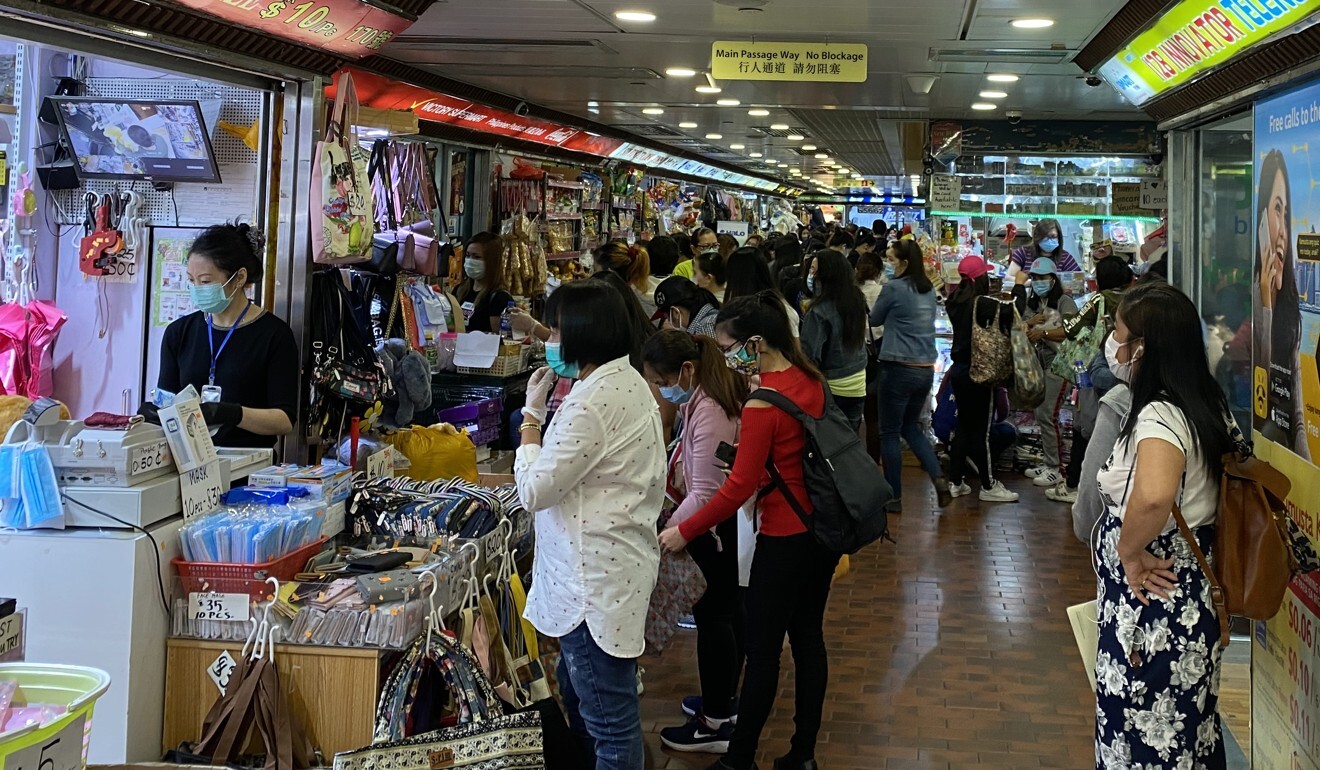
MORE VULNERABLE
Manisha Wijesinghe, director of case management at the non-profit group HELP for Domestic Workers, has encountered a growing number of domestic workers in financial trouble.
She says the crisis makes domestic workers extremely vulnerable. “The uncertainty of the job market makes it hard to know when they will be able to get back to a regular payment schedule. It is difficult to have any negotiation with money lenders.”
Tynna Mendonza, senior programme manager at Enrich, a charity that promotes economic empowerment of migrant domestic workers in the city, says she has dealt in recent weeks with an increasing number of requests for financial counselling.
Hong Kong’s first Filipino domestic worker with coronavirus ‘in good spirits’
According to Mendonza, most loans taken by domestic workers range from HK$4,000 to HK$15,000, but she has advised migrants who have up to HK$100,000 in loans.
“Many are unable to pay their loans on time because they can’t leave the employers’ home and experience calls and harassment from collectors,” Mendonza says.
On April 21, a Filipino domestic worker killed herself after leaving a note detailing financial problems, the Hong Kong News reported.
Mendonza says Filipino and Indonesian domestic workers share similar challenges. But “Indonesian domestic workers may be more vulnerable to predatory lenders and they may have less access to help, especially as many of them can’t read and understand English or Chinese. Oftentimes, in desperation, they just sign a loan contract, if such is provided, without completely understanding it.”
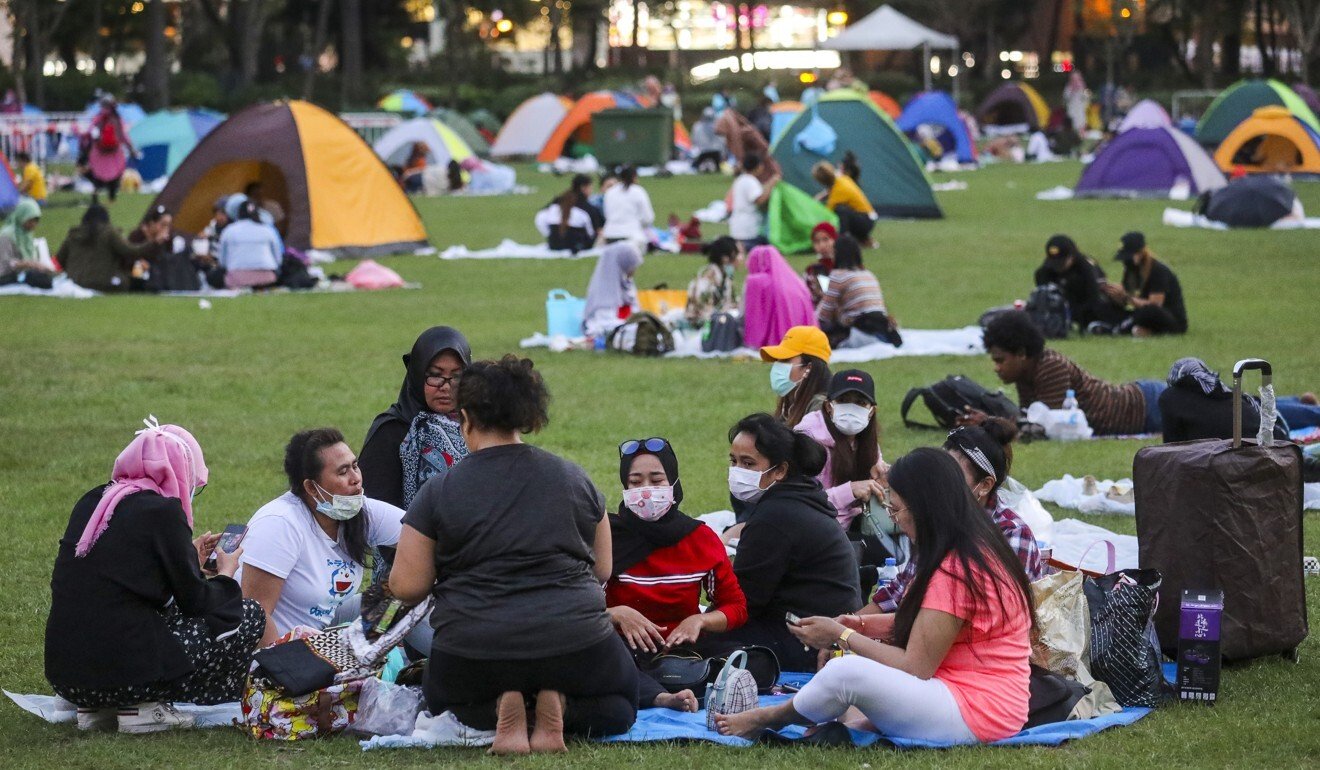
AGGRESSIVE TACTICS
“There are money lenders that employ predatory tactics – illegal interest rates, harassment, no receipts, collecting passports illegally – knowing that many domestic workers are financially illiterate and also desperately need money,” Mendonza says.
Domestic workers are not able to seek loans from banks in Hong Kong, which means they need to borrow money from licensed lending companies or even loan sharks and friends. Money lenders in Hong Kong can legally charge up to 60 per cent interest a year on loans.
David Bishop, a principal lecturer in accounting and law at the University of Hong Kong and founder of the non-profit Migrasia, says interest calculations in the loan documents are often inaccurate, making it seem like the borrower is paying less interest than they actually are.
‘It’s chaos’: Hong Kong’s domestic workers call for help amid coronavirus outbreak
“Anything over 60 per cent interest is illegal, but anything over 48 per cent is considered extortionate,” he says. “However, it’s extremely common to have loans that are over 48 per cent interest, and not uncommon to find illegally high interest of over 60 per cent.”
Bishop says some companies do not provide loan documents and don’t explain the terms of the loan clearly, and in a language the borrower can understand.
He also says money lenders in Hong Kong have shown little understanding amid the current crisis.
“It’s crazy how aggressive some of the money lenders and collectors have been during this time. I don’t think they have been flexible enough with domestic workers or others during this crisis,” he says.
In the Philippines, the authorities have ordered all banks, financial institutions and lending companies to implement a 30-day extension for loan payments.
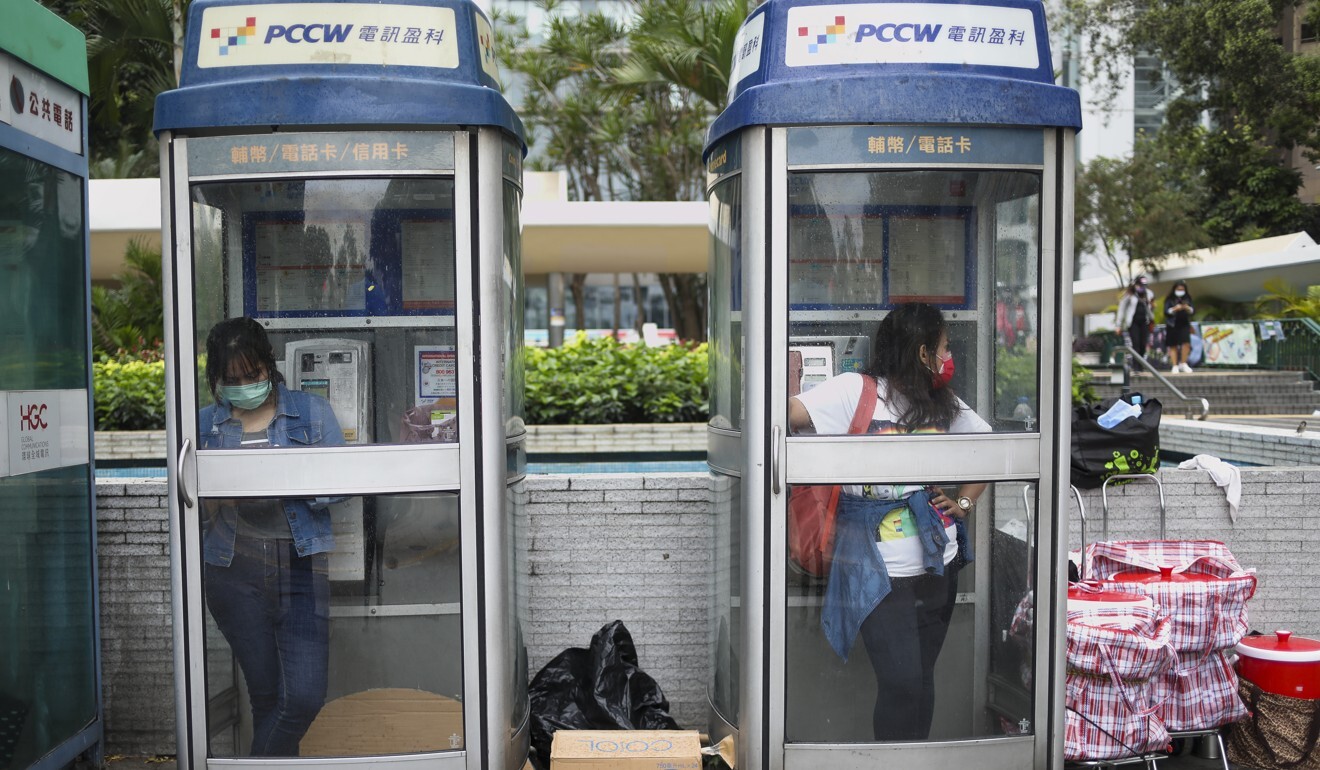
“If we use this as an example, the government and the lenders themselves in Hong Kong are not nearly flexible and proactive enough in terms of ensuring that the needs of the borrowers have been taken into consideration,” Bishop says.
Bishop says the moneylending industry in Hong Kong needs further regulation and the existing laws need to be enforced.
“It’s a complicated issue. Is it the system that allows it to happen, is it the money lenders taking advantage of the system or is it the government that is not enforcing the rules and the laws?” he asks.
A spokesman for the Hong Kong Licensed Money Lenders Association says given the coronavirus pandemic, “[the association] has encouraged its members to consider offering special relief loan plans, like restructured loans, extended repayment terms, repayment of interest only for a certain period, for customers in need. Yet, the final decision will be up to the individual member.”
The spokesman also says that although the city’s licensed money lenders already need to follow regulations and a code of practice, the association “welcomes and supports further exploration of guidelines and/or measures by the government authorities to ensure the sustainable and healthy development of the industry”.
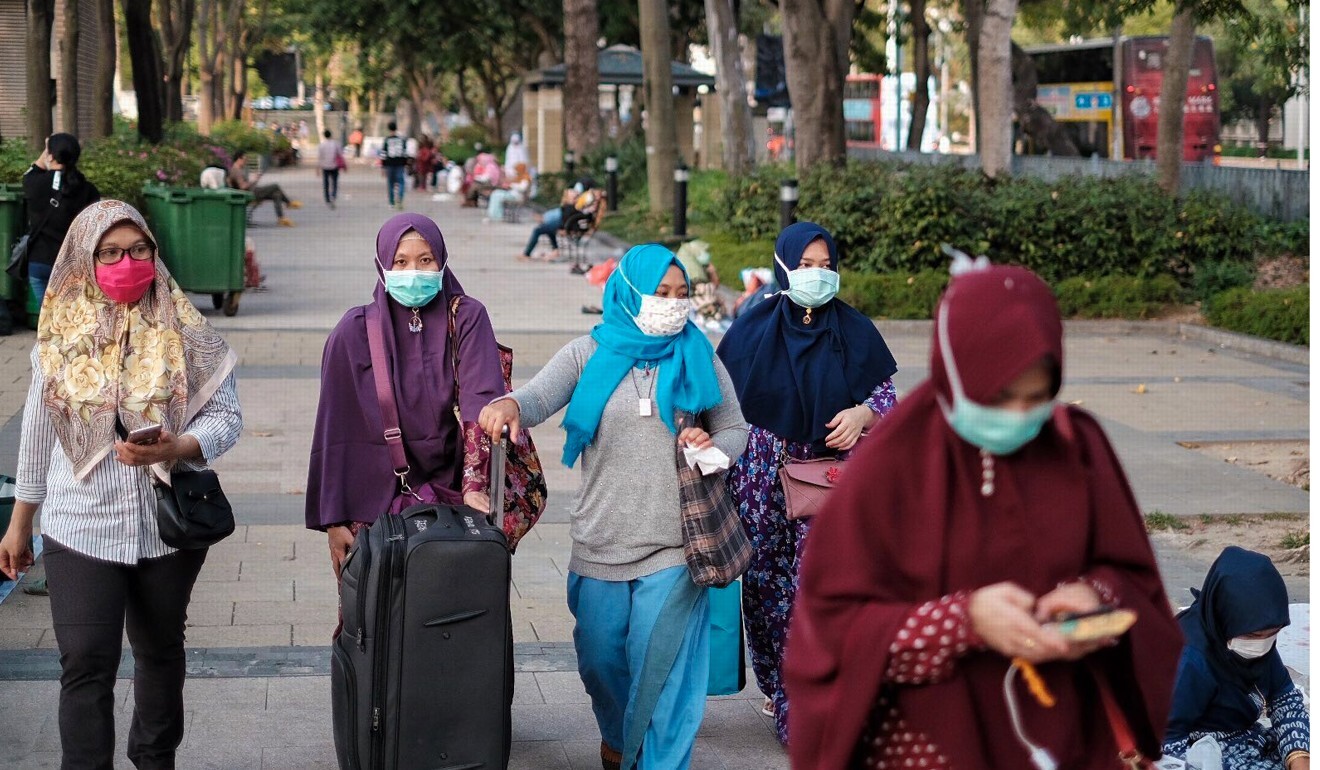
WAY OUT
Despite some bad actors, the industry has also seen the emergence of ethical firms in recent years, such as Good Financial. Joy Tadios-Arenas, a migrant expert and a co-founder of the company, says that “from interactions with borrowers, the lockdown [in the Philippines] was one of the main reasons why they need extra money. Tuition fees, house rentals and daily expenses are shouldered by migrants alone, now that other household members cannot go to work”.
But, more broadly, the World Bank has already predicted that remittances to the Philippines will fall about 13 per cent this year.
Call for action on Hong Kong forcing helpers to hand over passports
Meanwhile, Filipino consul Paul Saret says 197 Filipino workers in Hong Kong have already received about US$200 each as part of a cash assistance programme for those who have been affected by the pandemic. He says workers need to provide a termination letter or proof that the employer has relocated or passed away due to Covid-19.
He adds that other forms of assistance have been provided to migrants in need, including financial counselling, shelter, stipends for transport and food as well as airfare.
Indonesian consul general Ricky Suhendar acknowledges that “debt is a prevailing problem among the Indonesian migrant workers in Hong Kong”. He says the consulate has conducted awareness campaigns and training programmes on financial literacy.
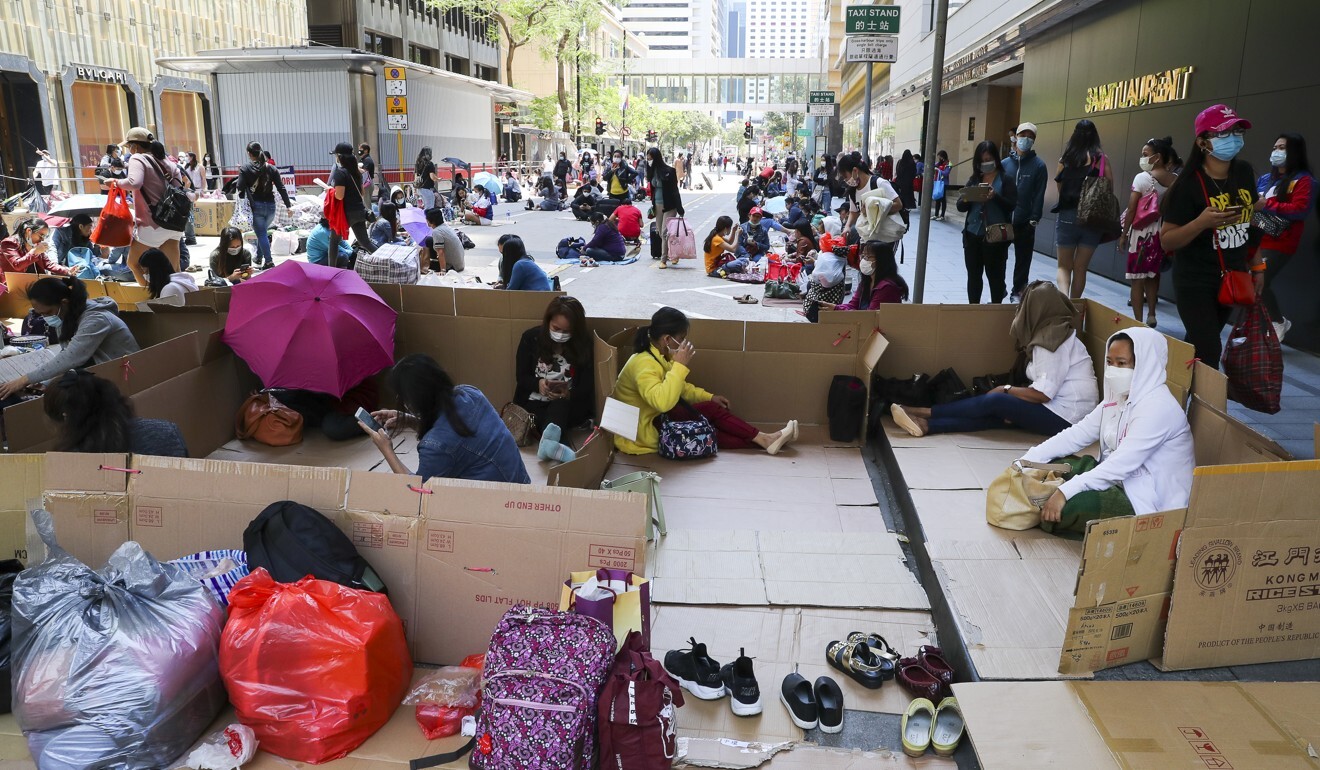
According to Suhendar, the Indonesian consulate receives between 5 and 10 complaints and requests for assistance every day. Those “who seek our help are mainly the ones who had their contracts terminated or who are pursuing their labour or legal cases and unable to work or receive any income,” he says.
For Rose, the domestic worker from the Philippines, life has become too much of an ordeal.
She is a single mother of two and has a bedridden mother. When she had a job, she would send them almost all her salary, keeping only HK$500 for herself.
Now, she worries about how her family more than 1,330km away are faring without her. In Hong Kong, the loan company keeps threatening her that the amount she owes will only grow. “I can’t even sleep,” she says.
Rose, who claims she was fired after starting to cough and sneeze, is now struggling to find another job in the city.
“My job is essential for my family. I just keep praying I can stay in Hong Kong.” ■
*The names of domestic workers have been changed to protect their identities
Help us understand what you are interested in so that we can improve SCMP and provide a better experience for you. We would like to invite you to take this five-minute survey on how you engage with SCMP and the news.

